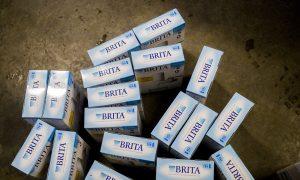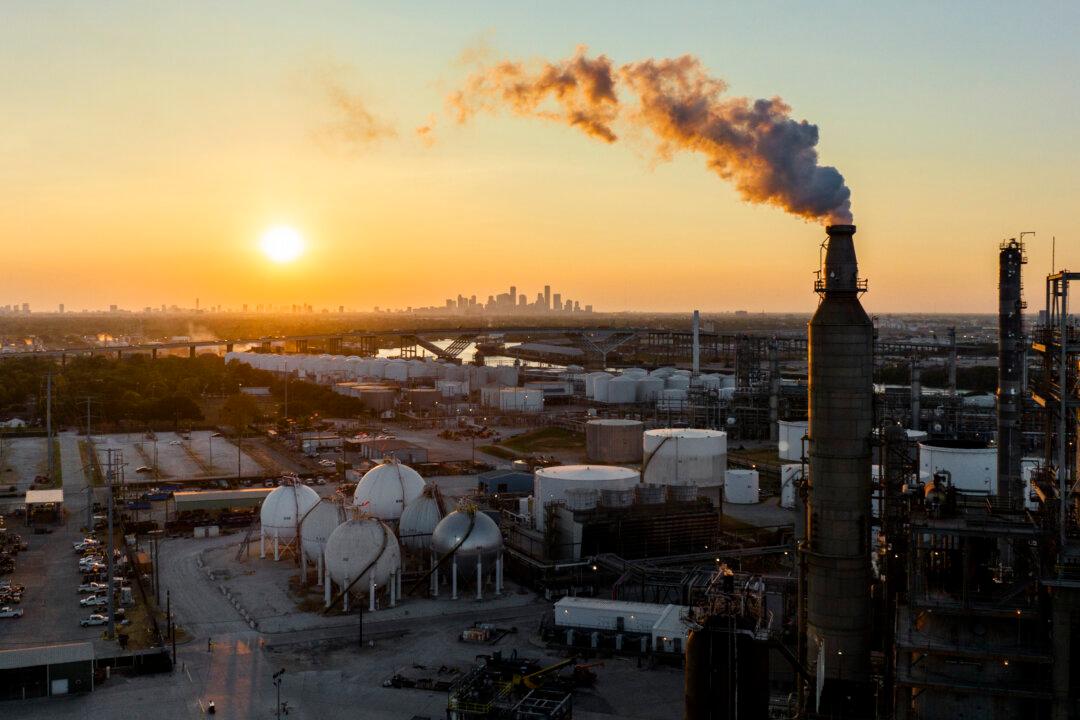Plant-based straws, touted widely as eco-friendly, have been found to contain “forever chemicals” that are known to damage the environment and be harmful to human beings, according to a recent study.
“PFAS were found to be present in almost all types of straws, but primarily in those made from plant-based materials,” like paper and bamboo, the study said.
“These ‘eco-friendly’ plant-based straws are not necessarily a more sustainable alternative to plastic straws, because they can be considered as an additional source of PFAS exposure in humans and the environment.”
The most sustainable straws were found to be those made from stainless steel. These straws can be reused; do not contain PFAS; and are fully recyclable, it said.
PFAS are called “forever chemicals” as they only break down slowly over time and can last for thousands of years, causing irreversible damage to the wildlife and environment. They are used in food packaging, cosmetics, and cookware among others.
Some of these chemicals have been linked to kidney cancer, thyroid disease, testicular cancer, and other illnesses.
Of the 39 brands tested in the study, 27 were found to contain PFAS, with 18 different PFAS detected in total.
Paper straws were most likely to contain PFAS, with the chemicals detected in 18 of the 20 tested brands. In bamboo straws, four out of five brands contained PFAS.
Three out of four plastic straw brands and two out of five brands of glass straws also contained these chemicals. PFAS was not detected in any of the five types of steel straws tested in the study.
The most commonly found straw-PFAS was perfluorooctanoic acid, which has been globally banned since 2020.
Though the study found that PFAS were only present in small quantities that do not pose a significant risk to human health, these chemicals can remain in the body and build up over time.
“Small amounts of PFAS, while not harmful in themselves, can add to the chemical load already present in the body,” said Dr Thimo Groffen, an environmental scientist at the University of Antwerp who was involved in the study, according to an Aug. 25 press release by Taylor & Francis.
Paper Straw PFAS Contamination
A similar study published in 2021 at ScienceDirect investigated 38 biodegradable straw brands purchased from Amazon in early 2020. It found that 36 brands had detectable levels of PFAS.“The presence of PFAS in plant-based drinking straws demonstrates that they are not fully biodegradable, contributing to the direct human ingestion of PFAS and to the cycle of PFAS between waste streams and the environment,” the study said.

Coating paper straws with PFAS allows them to become resistant to liquids. PFAS’ carbon-fluorine bond is one of the “strongest bonds in chemistry,” he said. “They’re very persistent, they repel water, those properties make it very difficult for them to break down.”
PFAS Water Contamination
In the United States, the prevalence of PFAS in drinking water has been a hot-button issue. An analysis of U.S. Environmental Protection Agency (EPA) data by the advocacy Environmental Working Group (EWG) revealed that 26 million Americans could be exposed to forever chemicals in their drinking water.
PFAS was found to be present in 431 water systems at levels above minimum reporting limits. “For decades, millions of Americans have unknowingly consumed water tainted with PFAS,” said Scott Faber, senior vice president for government affairs at EWG, according to an Aug. 17 news release.
“The new testing data shows that escaping PFAS is nearly impossible. The EPA has done its job, and the Biden White House must finalize drinking water standards this year.”
Urban regions were found to be at more risk of PFAS exposure than rural areas, with forever chemicals detected in more than 70 percent of urban locations or places with a known history of PFAS contamination. In rural areas, only 8 percent had PFAS exposure.






